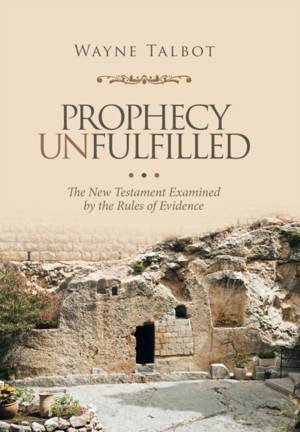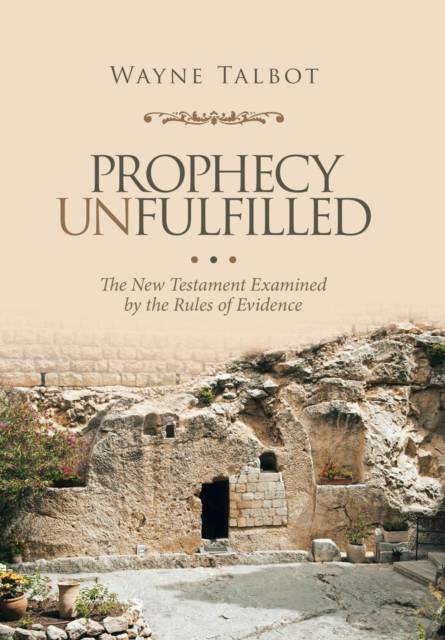
- Retrait gratuit dans votre magasin Club
- 7.000.000 titres dans notre catalogue
- Payer en toute sécurité
- Toujours un magasin près de chez vous
- Retrait gratuit dans votre magasin Club
- 7.000.0000 titres dans notre catalogue
- Payer en toute sécurité
- Toujours un magasin près de chez vous
Prophecy Unfulfilled
The New Testament Examined by the Rules of Evidence
Wayne Talbot
Livre relié | Anglais
48,95 €
+ 97 points
Format
Description
Prophecy Unfulfilled represents a continuation of the authors quest for the truth of God, by firstly uncovering the untruths that he had been taught during his formative years as a Catholic. Earlier works focused on the claimed new (replacement) covenant, the rejection of the Sabbath, and the rejection of Torah. Using the rules of evidence as in a court of law, this study seeks to evaluate the claimed messianic prophecy fulfillment by Jesus, some two thousand years ago. The first part of the book discusses the nature of evidence and how the rules regarding written evidence vary significantly from those of oral evidence, the latter being used most often by biblical scholars and Christian apologists. The first step is to authenticate the extant documents by examining the chain of custody and, thus, establish authority. Next is to authenticate the attributed authorship of the writings, to determine whether the authors were firsthand witnesses of the events they described, or whether their narratives are hearsay, with or without corroboration. Where little verbal agreement is found, this is circumstantial evidence of separate traditions developing the resultant theology. The study proceeds by examining every verse in the NKJV (New King James Version) of the New Testament that is annotated as being in fulfillment of prophecy, comparing the wording against both the NKJV Old Testament and an English translation of the Hebrew scriptures. Where significant variations exist, the author seeks an understanding from New Testament scholars, whom he frequently quotes. The eschatological temper of the early church is given due consideration, especially concerning the expectations of the Jews regarding the mission of the Messiah. Finally, the accomplishments of Jesus, as enshrined in Christian creeds, is compared with what is spoken of by the prophets. The authors conclusion is encapsulated in the books title.
Spécifications
Parties prenantes
- Auteur(s) :
- Editeur:
Contenu
- Nombre de pages :
- 744
- Langue:
- Anglais
Caractéristiques
- EAN:
- 9781984501684
- Date de parution :
- 31-08-18
- Format:
- Livre relié
- Format numérique:
- Genaaid
- Dimensions :
- 152 mm x 229 mm
- Poids :
- 1238 g

Les avis
Nous publions uniquement les avis qui respectent les conditions requises. Consultez nos conditions pour les avis.






